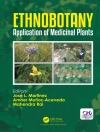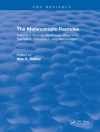A unique multi-media teaching kit for those instructing clients, staff, and students about HIV/AIDS.
HIV/AIDS has rapidly emerged as one of the greatest threats to human health in the 21st century. In the absence of a cure, prevention remains a crucial strategy for reducing its impact. It is critically important to understand not only the science of the disease, but also the behavioral and sociocultural influences that both facilitate and prevent the spread of HIV.
In a concise and convenient format The Complete HIV/AIDS Teaching Kit provides a multidisciplinary approach to teaching the biomedical, social, psychological, and behavioral aspects of HIV transmission, prevention and treatment–offering readers a full understanding of the disease. Helpful teaching tools like learning objectives, key medical and science terms, discussion questions, and quizzes are just a few of the resources included in the text to make counseling clients, leading group discussions, teaching students, or offering outreach in your community more accessible and effective.
- The CD Includes:
- Power Point slides
- In-classroom learning activities
- Supplemental homework assignments
- Recommended reading lists
- Web resources
- And much more!
Use the companion volume, Tools for Building Culturally Competent HIV Prevention Programs to answer all your questions about program structure, effectiveness, goals, recruitment, evaluation, and more.
สารบัญ
‘
About the Authors
Dedication
Acknowledgments
Introduction
HIV/AIDS: THE EPIDEMIC
PRVENTING HIV
LIVING WITH HIV/AIDS
GENDER, CULTURE, AND HIV/AIDS
Glossary
‘
เกี่ยวกับผู้แต่ง
Dr. Ralph J. Di Clemente, Ph D, is the Charles Howard Candler Professor of Public Health and associate director, Emory Center for AIDS Research. He holds concurrent appointments as professor in the School of Medicine, Department of Pediatrics, Division of Infectious Diseases, Epidemiology, and Immunology; and the Department of Psychiatry. He was most recently chair, Department of Behavioral Sciences and Health Education at the Rollins School of Public Health, Emory University.












